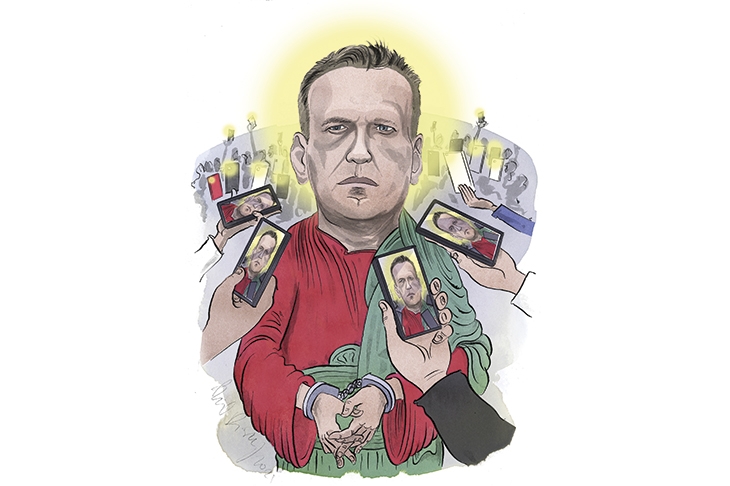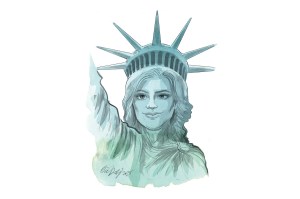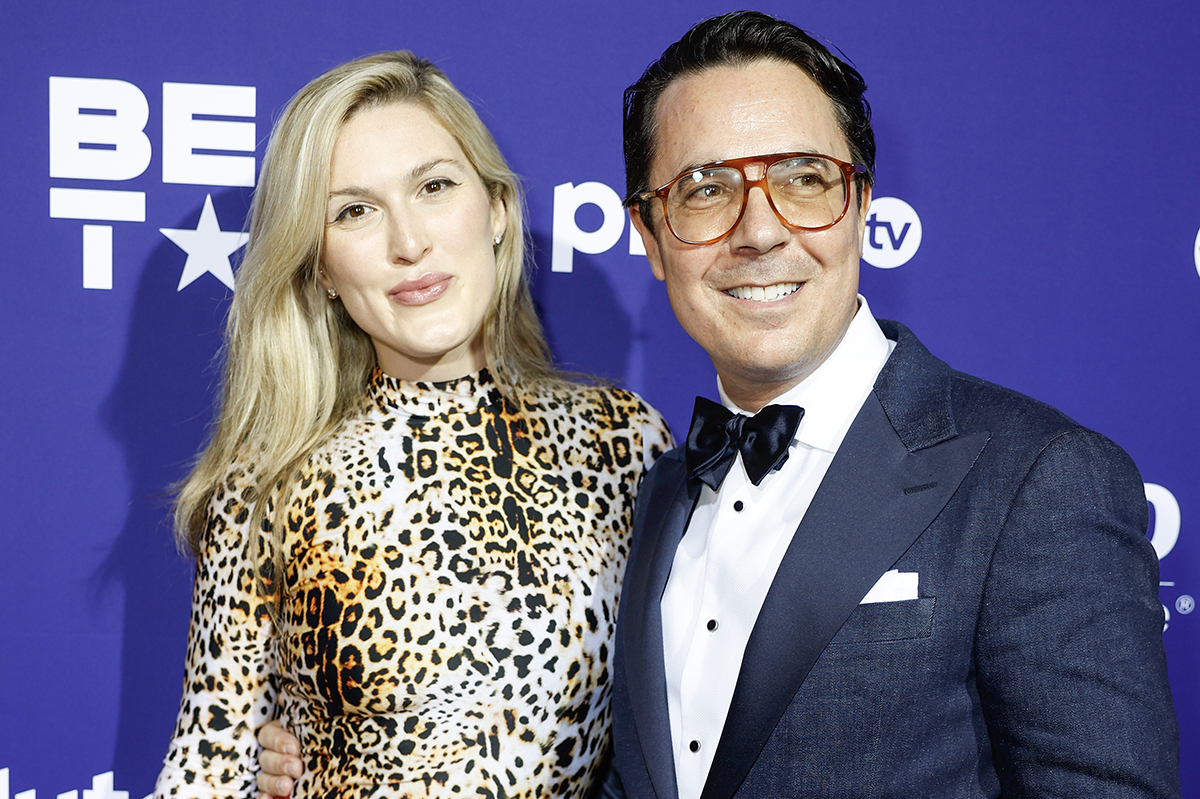‘Arrest me? Why would anyone arrest me?’ said Russian opposition politician Alexei Navalny to reporters last week as he boarded a Moscow-bound plane. Four hours later he was in jail — but not before spending an hour circling above the Russian capital as riot police shut down the airport where 2,000 supporters awaited him and diverted his plane to another.
Did Navalny truly believe he would not be arrested? Did anyone? A week before his planned return from Berlin, where he had been recovering from being poisoned by Russia’s security services, Navalny posted a video on social media in which he openly taunted Vladimir Putin. ‘Putin has been stamping his little feet, demanding that they do everything to prevent me from returning,’ he said. ‘I’m arriving Sunday on Pobeda Airlines… Come and meet me.’
Putin — notoriously sensitive to comments on his diminutive stature — did exactly that. To nobody’s surprise except perhaps Navalny’s, the Kremlin is now preparing to throw the book at him. A court hastily convened at the police station where he was being held remanded Navalny in custody for jumping bail and is likely to convert a suspended 2017 three-year fraud sentence to real jail time. A World War Two veteran has brought a slander case against him, carrying a potential five-year sentence, and federal prosecutors have been preparing fresh embezzlement charges since December — a case that Navalny described in his video message as ‘demonstrably false’.
It’s hard to see Navalny’s return as anything but an insanely brave — and insanely provocative — act of self-immolation. Russia’s prison service had clearly stated that it had a warrant for Navalny’s immediate arrest for failing to show up to a November bail hearing. And for years, Navalny’s coruscating YouTube exposés of official corruption and calls for tactical voting against Putin’s ruling party have provided a steady drumbeat of criticism that have seen him grow from a mere irritant to an open threat to the Kremlin’s power base.
Despite all these jeopardies — and despite coming close to death from Novichok poisoning administered, by the admission of one of the secret policemen involved, to his underpants — Navalny not only chose to voluntarily return but also to publicly challenge Putin to a very personal battle of wills. Yet for Putin, facing the endgame of his 20 years in power, this is not a battle he can be seen to lose.
Navalny is perfectly right about one thing. Putin would much rather this incorrigible gadfly remain safely in exile. Navalny’s poisoning in August was worse than a crime, it was a mistake. Worse than a mistake, the botched assassination attempt was a humiliation — not only for Russia’s Federal Security Service (FSB), but for Putin personally. In phone calls to Emmanuel Macron and Angela Merkel, Putin suggested that Navalny had poisoned himself — a lie so risible that the Élysée Palace press service broke protocol to leak the private conversation to the press.
More humiliation was to come when Navalny pulled off one of the greatest prank calls in history. Posing as an assistant to Nikolai Patrushev, head of Russia’s Security Council, Navalny called several of the FSB team who had been shadowing his movements for months. One of the officers fell for it and explained why the murder attempt had failed. The poison had been spread on the front of Navalny’s underpants, recounted the hapless FSB man Konstantin Kudryavtsev, but the victim had survived because an antidote had been administrated by doctors after his plane made an emergency landing in Omsk.
Journalists made follow-up visits to the officers’ (conspicuously crappy) apartment buildings to doorstep the bewildered men. The resulting video got 10 million views on YouTube in its first 48 hours online. To add insult to injury, the investigative site Bellingcat, in conjunction with Navalny’s team, published the identities of the 10 agents involved, plus records of their phone calls to various FSB superiors in the run-up to the poisoning.
The last time the FSB was so profoundly and publicly humiliated was the night in 1991 when protesters drove a crane on to Lubyanka Square and removed the towering statue of ‘Iron’ Felix Dzerzhinsky, founder of the Soviet secret police, from its plinth. Except that the public ridicule inflicted by Navalny was perhaps even harder to bear. Putin, in his annual marathon press conference last month, dismissed the video as ‘a fabrication’ and referred to Navalny — whose name, like Lord Voldemort’s, he has never publicly pronounced — as an ‘unknown blogger’.
Up to the August poisoning, the Kremlin’s policy towards Navalny was to harass him and throw him in jail for short terms for minor public-order offenses while launching a series of criminal cases against him — but then handing down suspended sentences of surprising leniency. At the same time, his close associates have been arrested, investigated and jailed, including his brother, Oleg, who served three and a half years in the same case in which Navalny was spared. The idea was to keep Navalny on a short leash with the constant threat of imprisonment.
That strategy failed to break Navalny’s brass cojones. In August he traveled to Omsk in the run-up to municipal elections, where he gathered devastating evidence of corruption by local officials who were standing for office and — most dangerously to the Kremlin — revealed a simple but effective plan for tactical voting whereby concentrating 150,000 votes behind opposition candidates could remove Putin’s United Russia from power in the country’s third-biggest city. That was the moment that Navalny went from gadfly to threat, and when the FSB hit team went into his underwear drawer at an Omsk hotel with their phial of Novichok.
What is not clear is whether Putin personally authorized the FSB’s attempted assassination, though Navalny has repeatedly named Putin as his would-be murderer. According to two veteran sources in the Kremlin press pool, news of the poisoning caught Putin’s inner circle at the Novo-Ogaryovo residence completely off guard, disrupting the president’s schedule and causing a two-hour official silence as top advisers huddled with the boss. Putin’s spokesman Dmitry Peskov eventually wished Navalny well and assured reporters that he was free to leave the country for medical treatment — a promise that the Kremlin later regretted and tried (unsuccessfully) to rescind.
That may be thin evidence of Putin’s innocence, but if it’s true it casts a much scarier light on the poisoning. If, as the Bellingcat call records seem to show, the operation was planned and authorized at the highest levels of the FSB, then it’s possible that the FSB attempted to execute Putin’s most prominent enemy on its own initiative. The traditional narrative is that nothing is done in Russia without Putin’s say-so — but with the murder of opposition leader Boris Nemtsov in 2015, for instance, that seems not to have been the case. Nemtsov was gunned down by former members of Chechen strongman Ramzan Kadyrov’s presidential guard, apparently on Kadyrov’s orders, not Putin’s. And there has been a long, ongoing debate in Putin’s inner circle on how to deal with Navalny and the wider question of cracking down on protest between security service hawks (including Patrushev and FSB head Alexander Bortnikov) and more technocratic doves such as Prime Minister Mikhail Mishustin and economic development minister Maxim Reshetnikov. Until August, it was an argument that the doves seemed to be winning. Whether Putin personally approved or not, the attempt on Navalny’s life shows a clear shift in the Kremlin’s attitude.
Navalny, for his part, seems to be betting that the threat of civil unrest in Moscow and other major cities will rattle the Kremlin into renewing its former forbearance. It worked in 2013, when Navalny was convicted and sentenced to five years in jail for embezzlement. Large demonstrations followed, and the conviction was quickly overturned (though later replaced with re-conviction, house arrest and a suspended sentence). But times have changed. Back then Putin was gearing up for the Winter Olympics in Sochi, a showpiece that public unrest could spoil. He faces no such restraint now, as attested by a wave of extreme crackdowns on street demonstrations in 2019 calculated to terrify would-be opponents into staying at home.
Doubtless Navalny is counting on the support of western world leaders. Joe Biden’s incoming national security adviser broke the Trump-era reluctance to criticize the Kremlin by calling for Navalny’s release and demanding that the ‘perpetrators of the outrageous attack on his life be held accountable’. But Putin has already effectively ignored six years of successive sanctions by the EU and US, and since the annexation of Crimea he has made clear that he cares little for liberal western opinion.
Navalny’s snappy anti-corruption videos have earned him an online audience of tens of millions, yet his appeal beyond Russia’s major cities is limited. He’s undoubtedly better known now — in large part thanks to the FSB’s bungled poisoning — but he remains very far from a formidable electoral force capable of challenging Putin. A poll last month by the independent Levada Center found that just 15 percent of Russians believed what happened to Navalny was an attempt by the authorities to rid themselves of a political opponent, 30 percent thought that the incident was stage-managed and that there was no poisoning, and 19 percent said they believed it was a provocation orchestrated by western intelligence services.
Seen solely from the point of view of electoral arithmetic, the smart strategy for the Kremlin would be to let Navalny walk free and continue its policy of officially pretending he doesn’t exist. But the electorate is not the constituency that keeps Putin in power — it’s the FSB. And the hard men of the Lubyanka have made it amply clear that they are not in a forgiving mood.
This article was originally published in The Spectator’s UK magazine. Subscribe to the US edition here.

























